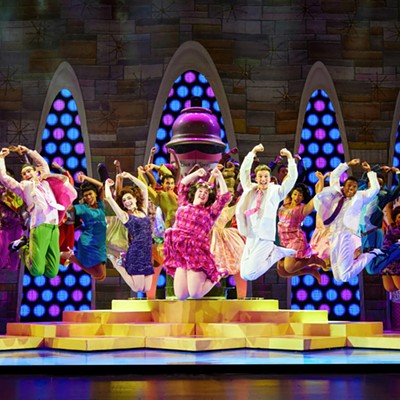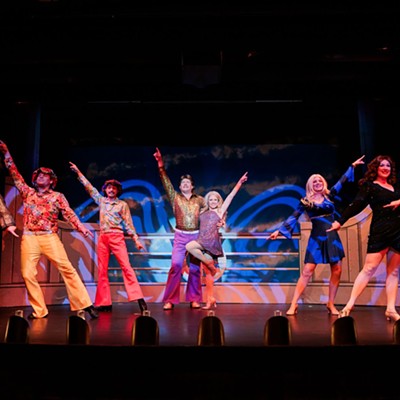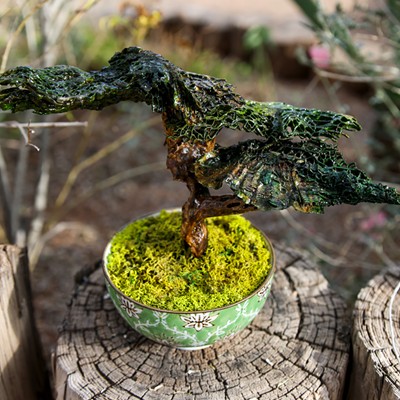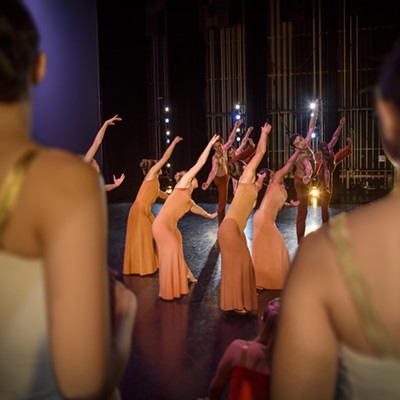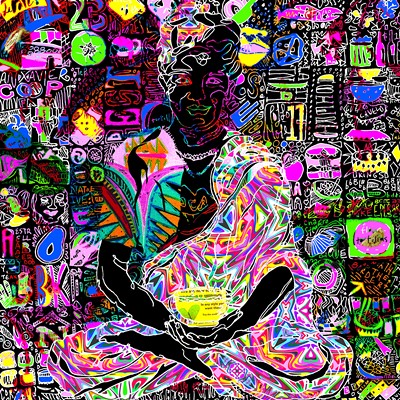If you think that "The Harold" might be the brother of "The Donald," you would be wrong.
And if you think that improvisational theater is less than and never equal to scripted theater, you might want to take a look at that notion as well.
There are a couple of groups in town that take their improv skill-building and practice pretty seriously. They train hard, rehearse regularly and try to bring their best stuff to a creative moment which those in the audience will experience with them, and which then will never again exist .
This is actually also true of scripted theater—or any live performing art, for that matter—but when you are grounded with a script, this is not so handily perceived.
In general, the world of improv is one of Yes/And. "I agree to what's happening and I will add information to it," is each player's commitment and the foundation of the whole process.
The folks of Unscrewed Theatre specialize in what is known as short form improv. Mike Vietinghoff serves as the executive director and he has been with the troupe for most of its 13 years. The group was totally itinerant, rehearsing in any space they could and performing in bars and restaurants. Vietinghoff says that as they were approaching their tenth anniversary, in 2012, they began to think more in terms of permanence. So they found a space, were incorporated and given 501(c)3 status and held their first fundraiser.
Their performers number about 20 folks now, many who have been members for years, and their typical shows involve six players and an emcee, who takes answers from questions posed to the audience and translates them to a set of circumstances for the players. Other scenes develop within a variety of common improv formats. Most of their shows are family friendly.
There is method to their madness, as well as that of Tucson Improv Movement, a newer group headed by Justin Lukasewicz. There are guidelines and specific skills to develop, many of the same ones that actors use. In fact, says Lukasewicz, many of these skills are life skills, such as listening, working with others, and staying in the moment. Both groups offer a graduated series of classes, taught by their performing members.
No one is paid except for the teachers at Unscrewed, which has a couple of generous sponsors, and tickets and concession proceeds all go to pay the rent and non-negotiable expenses. No one at TIM is paid.
Unscrewed has a well-established audience, often filling their 100-seat theater. "Each show is a unique journey together," says Vietinghoff. "It's always surprising and fresh."
Lukasewicz was here at the UA in 2006-2008 and moved to Chapel Hill to attend grad school (although not improv grad school.) But he found himself spending a lot of time at Dirty South Improv theater, and when he returned here in 2012 he started an improv class, which focused on long form improv. "The audience will give us just one suggestion and we will improvise off that for 25, 30, 35 minutes. It's still comedy, but I think it's more artistic; it's not as fast paced as a short form show. It develops themes, it develops characters, it develops relationships. The question becomes, how do we connect all these threads that we started to seem like it's all happening in the same world? Sometimes people think when we step on stage we have concepts going into it, but we really don't. Everything is developed in the moment."
And then there's The Harold. "It's really a strict long form format." He explains, "There's an opening where we brainstorm ideas; you see three specific scenes which are really different from each other; then ... Oh, just trust me. It is specific. And complicated."
Generally for a Harold show there's eight people, but a long form show utilizes six to nine folks. They do a Harold show twice a month (on the second and fourth Friday.) Saturdays are for short form shows that are family friendly.
Then it just depends, says Lucasewicz. They like to do "runs," and this month they're doing "Best Show. Period," which is an all female show, but it's more free-form than Harold-like. Then there's a regular presentation from the "premier team" called "The Soapbox," which is very free form. And there are others.
So, does any of this stuff cross from comedy to something more serious? Lukasewicz says, "Our philosophy is really that we want to play as real as possible, so we may be commenting on society or real life and relationships. Ultimately we want it to be comedy and entertaining and a lot of laughing." But using comedy to spark conversations is part of the mix, he says.
TIM has now been on Fourth Avenue for almost eight months. They have 49 performing members and they offer five levels of classes.
For Lukasewicz, what is most personally fulfilling is watching the trainees "develop and finding a lot of joy" in the form. "In most work environments there are always limitations, but on stage you can push the limits and the barriers. Going from a world where people say no a lot to a world where people say yes all the time is really enjoyable."
Yes/And.

